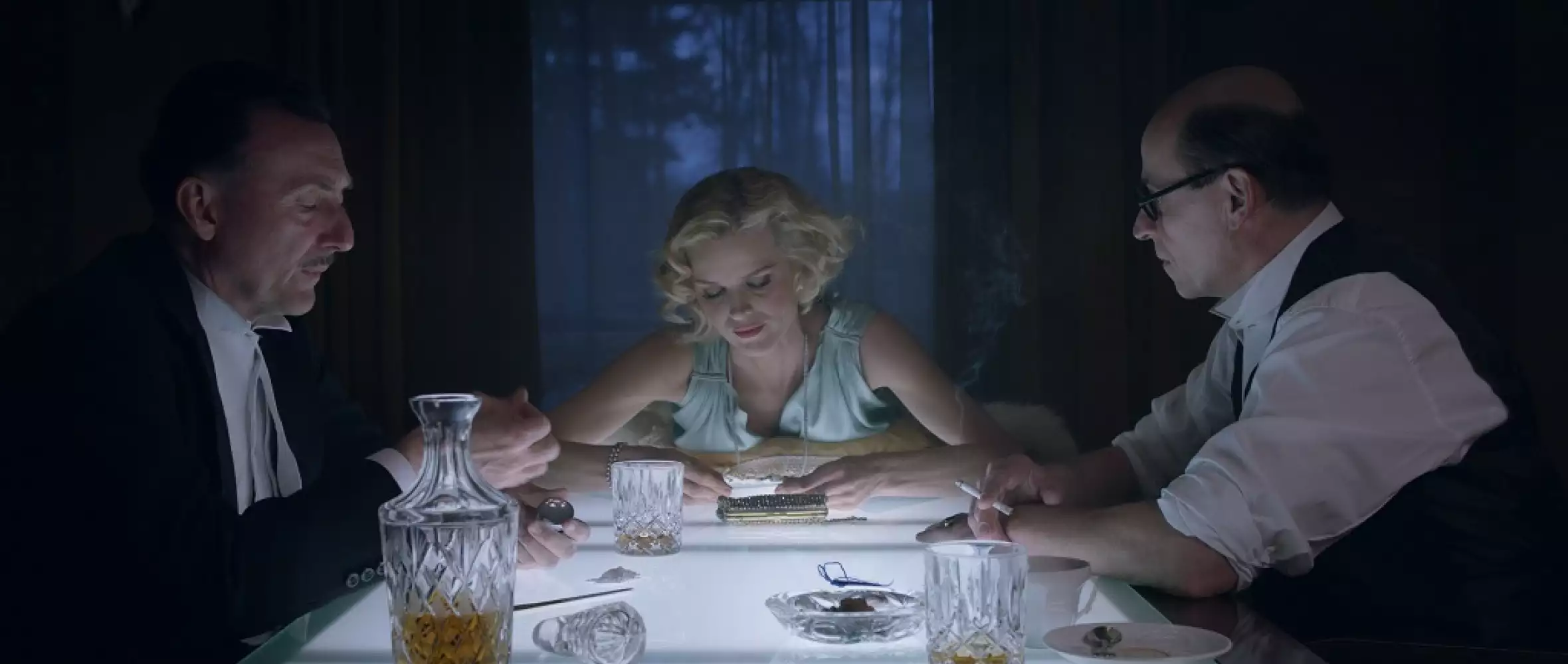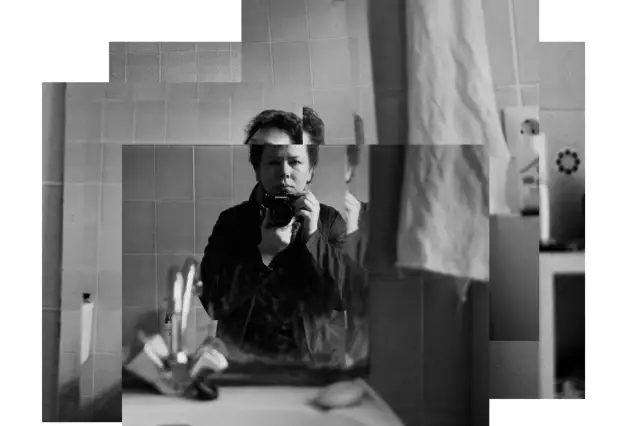
10 February 2017
A Prominent Patient by Julius Ševčík at Berlinale Special
A Prominent Patient by Julius Ševčík at Berlinale Special

A Prominent Patient, the new film by talented Czech director Julius Ševčik, is getting its international premiere in the Berlinale’s prestigious Berlinale Special section. The project reflects a new wave of interest in the genre of biographical drama, for many years neglected in Czech cinema.
Article by Jakub Jiřiště for Czech Film Magazine / Spring 2017
From 1991 to 2014, only eight Czech films were made dramatizing the life of a historical figure, and in four cases, ironically, the subject was a murderer. Unlike Polish and German filmmakers, Czech directors and producers haven’t felt the urge to look back at controversial periods in Czech history and address their legacy. Instead, for the most part, historical dilemmas have been hidden under the veil of family fiction, adopting a conciliatory tone consistent with the nostalgic feelings of many Czechs. In the past two years, however, Czech cinema has undergone a remarkable evolution. To a great extent, this is thanks to increased financial support. Grants from the State Cinematography Fund improve the conditions for costly projects requiring extensive development. Likewise, being able to draw on European funding and take part in coproductions means that producers can avoid relying solely on revenues from theatrical distribution. The fact that non-mainstream films are more likely to obtain institutional support is probably why Czech producers are now changing course to pursue the genre of “art mainstream,” in many cases based on sweeping subjects and stories. From this perspective, having a turbulent history to draw on is a great advantage, offering plenty of story ideas and fascinating characters.
The producer of A Prominent Patient, Rudolf Biermann of In Film Praha, has also produced the most successful Czech comedies in recent years, but is now changing direction. Together with Ševčík, he is currently preparing the next release in a series of historically based films aimed at an international audience: an adaptation of the Simon Mawer novel The Glass Room, about the Jewish family who lived in the famous Villa Tugendhat before World War II.In 2016, as a result of the shift described above, five biographies were made, in addition to A Prominent Patient. Surprisingly, the only one to challenge the standard account of history was Anthropoid, by British director Sean Ellis, depicting the events around the assassination of Nazi Reich Protector Reinhard Heydrich. But many films now in the works do dare to confront history, including the story of politician Milada Horáková (Milada), who was executed by the Communists, and a film portrait of Zdeněk Toman, the contradictory head of the Czechs post-World War II intelligence service (Zdeněk Toman).

Now, A Prominent Patient is the first Czech film (not counting TV) since the fall of the Iron Curtain that seeks to present an authentic portrait of a prominent political fi gure. For his dramatic material, Ševčík draws on the not so widely known story of diplomat and foreign minister Jan Masaryk, son of the first president of Czechoslovakia, Tomáš G. Masaryk. Several directors before have tackled the story of Jan Masaryk’s death, shortly after the Communist takeover, under circumstances that remain unclear to this day. However, Ševčík, together with his two cowriters, each representing a different generation (Alex Koenigsmark, who died before the fi lm’s completion, and Petr Kolečko, a rising star of satirical comedy), chose instead to focus on the formative period of his life. The story concentrates on the turning point in Jan Masaryk’s life, set against the backdrop of the Munich crisis, in late 1938 and early 1939, when the leaders of Europe sought in vain to preserve peace on the continent by sacrifi cing the Czechoslovak state to Hitler. The British government played a crucial role in this decision, and Masaryk (played by Karel Roden), who at the time was serving as Czechoslovak ambassador to London, was a key figure in the diplomatic negotiations, holding the fate of his nation in his hands. The negotiations ended up being a futile struggle for attention, and the frivolousminded Bohemian came out of them crushed man. The weight of responsibility gradually drove him to the very edge of self-destruction. Unable to live up to the legacy of his deceased father, Jan Masaryk felt he had failed. Despite that, he stood confidently at the head of the government in exile, fighting for the liberation of his occupied homeland.
This crucial period, marked by Masaryk’s mysterious disappearance over the ocean at one point, serves as a frame for the film, supported by the two pillars of Masaryk’s interior transformation: Dr. Stein (Hanns Zischler), an American writer and head of a psychiatric hospital, and Marcia Davenport (Arly Jover), the woman who becomes his fiancée. Here, the arduous process leading to Masaryk’s decision to reaccept his historical role is intertwined with images of his deepening collapse. Thus, working on two different time levels, the filmmakers create a captivating study of inner conflict, simultaneously reflecting the national and personal fates. Their participation in the prestigious ScriptEast workshop, in 2015, demonstrated the creators’ commitment to making the story accessible to an international audience, by getting input from other filmmakers around the world.

A Prominent Patient’s dramatic arc recalls the acclaimed 2010 British biographical drama The King’s Speech, which also depicted a personal transformation driven by the exigencies of power politics. But the originality of Ševčík’s film resides in his more introspective, intimate approach, underlined by the remarkable visuals of DoP Martin Štrba, whose melancholic sunsets resonate with the mood of swing melodies supplied by acclaimed Polish composer Michal Lorenc. The film, with a budget of 2 million euros, was made as a Czech-Slovak coproduction, with support from the Czech Republic’s State Cinematography Fund (including production incentives) and the Slovak Audiovisual Fund. Other significant contributions came from the Czech and Slovak public television companies, and from the German ZDF, in exchange for ARTE broadcast rights. One great advantage for international presentation is that a large part of the fi lm was shot in English, using British actors.






